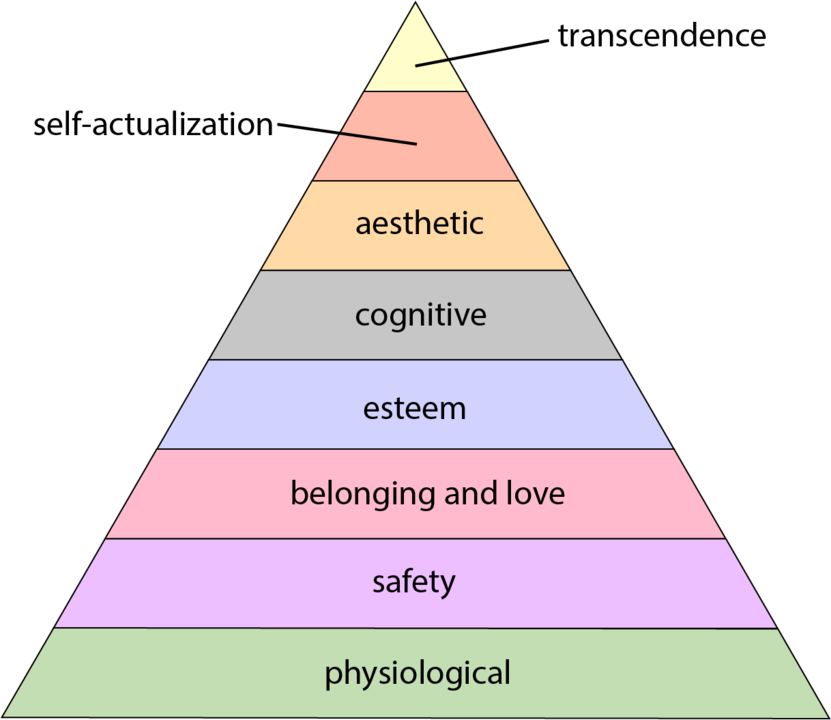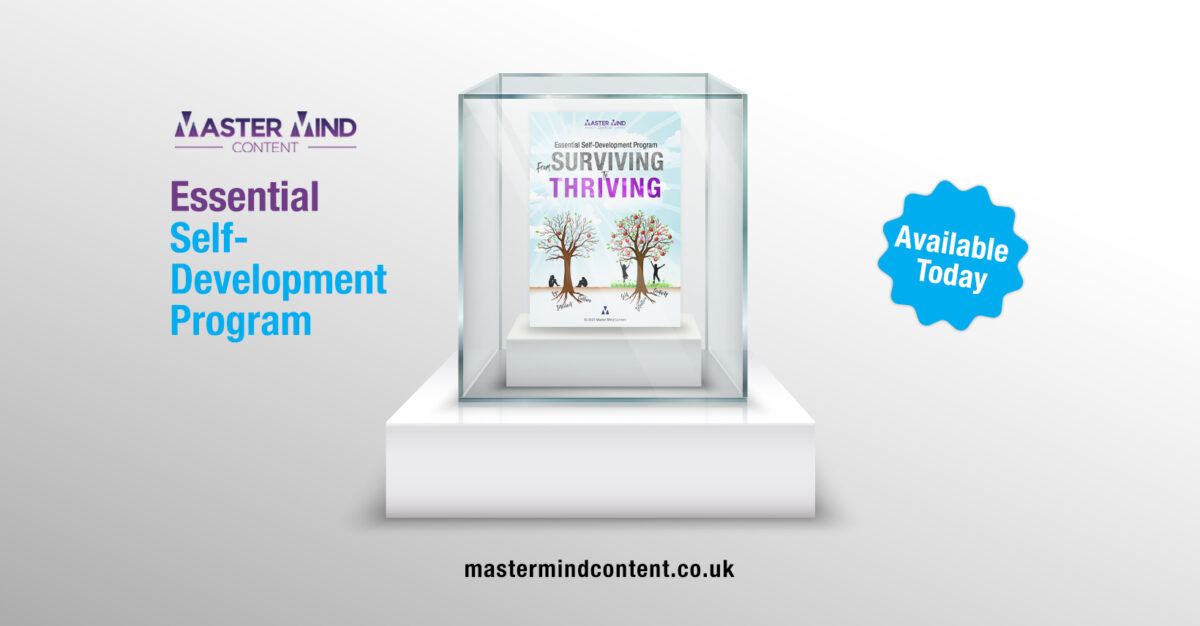
Maslow’s hierarchy of human needs is a psychological model promulgated by the American psychologist Abraham Maslow in his 1943 paper “A Theory of Human Motivation.”
Maslow premise is that individuals have a hierarchy of needs which need to be met to maintain sound physical and mental health.
Maslow’s hierarchy of human needs is typically rearranged into a pyramid of importance with the most fundamental needs at the base and higher-level needs at the top. There are typically eight layers in the pyramid, but the simplified version of Maslow’s hierarchy of human needs features five layers.
Maslow proposed that individuals must satisfy lower-level needs before progressing to higher-level needs. Each stage of the pyramid only becomes possible after lower-level needs are sufficiently met.
However, some would argue that is not strictly true.
In his book ‘Man’s Search For Meaning,’ in which Viktor Frankl describes his experience in Nazi concentration camps during the Second World War, it is demonstrated that loving and belongingness can still be achieved even if an individual’s physiological and safety needs are not satisfied.
On the other hand, the capacity to feel love and belonging was probably already part of the biological structure of some of the captives. Regarding psychological growth, the five steps of Maslow’s hierarchy of human needs provide a path for self-development — from surviving to thriving.
Additionally, Maslow suggested that self-actualised individuals tend to have a more accurate perception of reality, greater acceptance of themselves and others, a strong sense of purpose, and can achieve states of peak experiences characterised by flow, creativity, and personal fulfilment.
Essentially, Maslow believes that self-actualisation is a state of wholeness. Let’s not forget that the English words whole and healthy share the same etymological root. Thus, developing your personality to fullness should be the goal in life.
Thought-Provoking Quote
“Since this inner nature is good or neutral rather than bad, it is best to bring it out and to encourage it rather than to suppress it. If it is permitted to guide our life, we grow healthy, fruitful, and happy.
~ Abraham Maslow: Toward A Psychology Of Being, p.14, Kindle Loc 219 (1962)

The fundamental condition that Maslow’s hierarchy of human needs starts with our most basic needs required for survival; food, water, air, shelter, and sleep.
If our basic physiological needs are not met, it can lead to physical discomfort (dis-ease) and other physical and psychological health issues. The latter includes a heightened sense of anxiety, desperation, and a singular focus on survival which keeps you rooted in limited growth potential.
Once physiological needs are met, individuals seek safety and security, including physical safety, financial security, health, and protection from harm. When safety needs are not met, individuals may experience feelings of insecurity, fear, and anxiety.
This can manifest as hypervigilance, distrust, and avoidance of situations perceived as risky or threatening. Insecurity plays a role in denying yourself opportunities to fulfil your wishes and desires.
After achieving safety, people desire social connections, love, affection, friendship, and a sense of belonging within family, friendships, and communities.
A lack of love or sense of belonging can lead to feelings of loneliness, isolation, and alienation. Individuals may experience emotional distress, depression, and a sense of not fitting in or being accepted by others which impedes the building of self-esteem.
With social belonging satisfied, individuals strive for self-esteem, respect from others, recognition, status, and accomplishment. This includes both external esteem, such as reputation and recognition [Everyman], and internal esteem, such as self-confidence and self-respect [Caretaker].
Failure to meet esteem needs can result in low self-esteem, feelings of inadequacy, and a lack of confidence. Individuals may seek validation and approval from others, feel unfulfilled or unsatisfied with their achievements, and struggle with feelings of inferiority.
At the pinnacle of the hierarchy is self-actualisation, where individuals pursue personal growth, self-improvement, fulfilment of potential, creativity, and achieving one’s purpose. This involves realising one’s capabilities and striving to become the best version of oneself.
If self-actualisation needs are not met, individuals may experience a sense of stagnation, unfulfilled potential, and a lack of purpose or meaning in life. This can lead to feelings of frustration, existential angst, and a longing for personal growth and self-expression.
Thought-Provoking Quote
“Self-actualisation stresses full humanness, the development of the biologically based nature of man.”
~ Abraham Maslow, Toward A Psychology Of Being
To become whole, you need to understand human nature. This can be achieved by knowing your archetypes.

